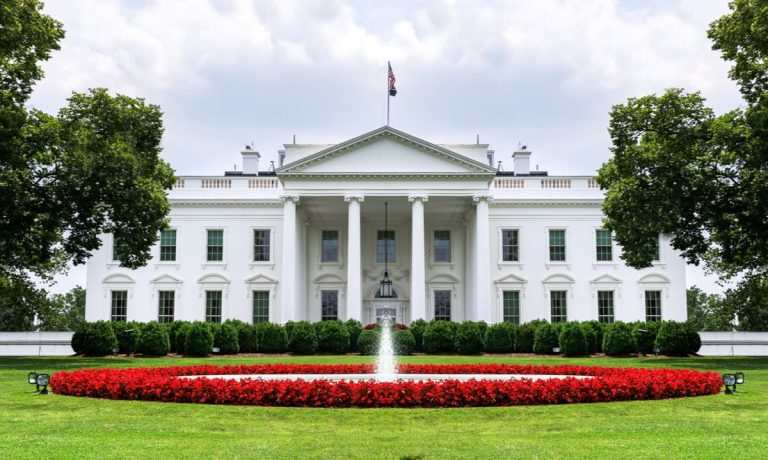Crypto Businesses Embrace Executive Order as Invitation To Talk

While it fell back pretty quickly on other economic news, there’s a reason that bitcoin pumped 9% after President Joe Biden’s executive order on crypto. Simply put, it was about as favorable a directive as the industry could reasonably expect.
Issued on Wednesday (March 9), the executive order has been widely embraced in the cryptocurrency industry, in large part because it approaches digital assets with an open mind, viewing them as a potential source of innovation and economic expansion rather than a threat to counter.
See also: Biden’s Executive Order Set to Fast-Track Crypto Policy
That’s not to say there isn’t a strong focus on combating crypto’s use by tax evaders, money launderers and sanctions evaders — a fair chunk of the text focuses on protecting consumers, combating money laundering and protecting national security.
Jerry Brito, executive director of Coin Center, a Washington, D.C., crypto think tank, said it best: “The [order] is just further affirmation that when serious officials take a sober look at crypto, the reaction is not to light their hair on fire, but instead to recognize it as a innovation that the U.S. will want to foster and lead while mitigating obvious risks.”
Well, the EO is just further affirmation that when serious officials take a sober look at crypto, the reaction is not to light their hair on fire, but instead to recognize it as a innovation that the U.S. will want to foster and lead while mitigating obvious risks.
— Jerry Brito (@jerrybrito) March 9, 2022
Calling the tone and content of the executive order a “striking contrast with alarmist politicians and media,” Brito said the “message I take from this [order] is that the federal government sees cryptocurrency as a legitimate, serious, and important part of the economy and society, and I think it’s a good signal to serious people who’ve been holding back from getting involved.”
Dave Grimaldi, executive vice president and head of government relations at the Blockchain Association, took a similar view.
“We were fearing a heavier hand, and possibly some tougher proclamations, but for an emerging industry, this is a sensible step toward protection, law enforcement, and education,” he said on Twitter. “Exciting times, with level-headed pragmatism winning the day.”
From a Democratic White House, that’s to be expected, and not a surprise. We were fearing a heavier hand, and possibly some tougher proclamations, but for an emerging industry, this is a sensible step toward protection, law enforcement, and education.
— Dave Grimaldi (@dfgrimaldi) March 9, 2022
Jeremy Allaire, CEO of USD Coin stablecoin issuer Circle, who has testified before Congress about the industry, said the executive order shows that the “proverbial doors of policymakers are wide open, this is now a national conversation in the U.S.”
Big Brother is Legislating
The libertarian wing of the industry begs to differ.
Erik Voorhees, founder of the ShapeShift cryptocurrency exchange and a stalwart member of the libertarian wing, was dismissive, calling the executive order a “perfectly political communication” with nothing but “platitudes about balancing innovation with protecting the financial system.”
Bitcoin’s origins are deeply enmeshed in the part of the peer-to-peer payments system that bypasses not only financial institutions but also government control. That’s where the relatively widespread industry acceptance of privacy coins and mixing services designed to obscure the blockchain trail of crypto and make it harder for law enforcement to track down users’ identities comes from.
Read here: PYMNTS Crypto Crime Series: When Privacy Counts, Crypto Users Turn to Mixing Services
Be Careful What You Wish For
Meanwhile, crypto opponents are busy pointing out that the order does call for the crackdown they want.
Sen. Elizabeth Warren, D-Mass., a staunch opponent of crypto who believes the industry is in large part a way to scam investors and evade the law, looked on the brighter side.
Speaking of the executive order, she said Biden “is right to spotlight crypto’s risks, and we need strong rules before it’s too late.”
She added: “I’ve been ringing the alarm bell on crypto, from consumer protection to the environment to national security — especially since Russian elites can use digital assets to undermine sanctions.”
Sen. Cynthia Lummis, R-Wyo., a strong crypto supporter and longtime Bitcoin investor, took the same message from the executive order, but from the other side.
While welcoming the administration’s “growing interest in digital assets” and saying that she agrees with the order’s focus on the need to combat money laundering and protect national security, Lummis said: “I think his executive order misses the fact that the overwhelming majority of digital asset users are law-abiding and trying to make our financial system better.”
It’s noteworthy that the timing of the reports the order calls for the reports from nearly every agency in 180 days, which means right before the midterm elections. This could be either a boon or a bane for industry supporters.
John Reed Stark, an SEC veteran who led its Office of Internet Enforcement for more than a decade, is deeply critical of the cryptocurrency industry as a hotbed of fraud.
In an interview with Vice, he warned: “These boasts by the industry that the government is accepting crypto. Be careful what you wish for.”
Noting that they “always call for clarity,” he said that that clarity isn’t always welcome.
“These government agencies will look very hard at these questions and come up with the same answers that the people who wrote the infrastructure act came up with — that without transparency and integrity, these marketplaces are dangerous.”
That means you need regulation, he said.
“And regulation isn’t fun,” he warned. “It’s costly, it’s cumbersome, and it can be the death knell for companies.”